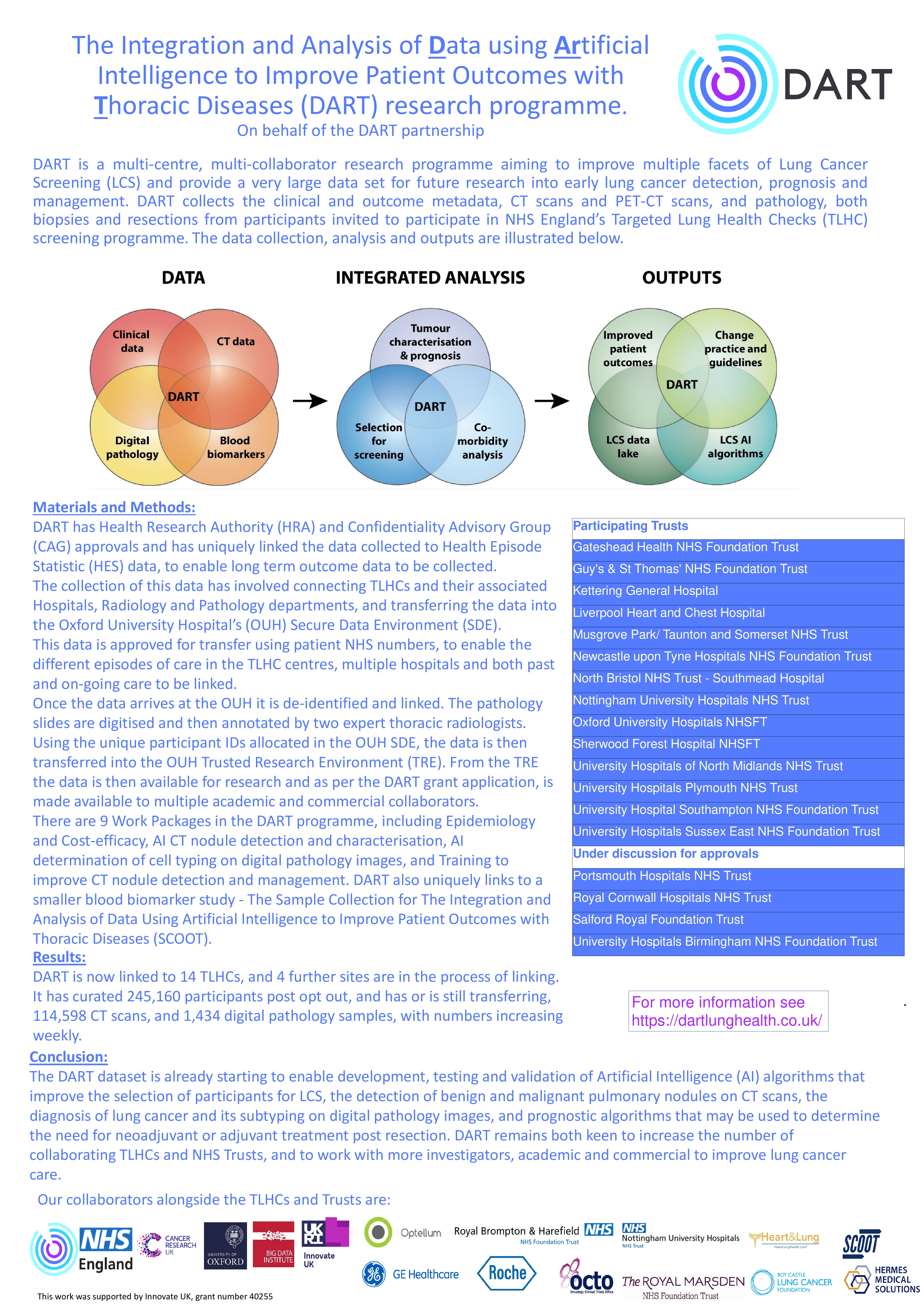Unlocking the future of lung cancer screening: How DART is redefining early diagnosis
October 23, 2023
When it comes to the battle against lung cancer, early detection is the key to saving lives. But what if there were a way to transform the diagnostic process and make it more accessible?
That is what we’re trying to achieve through our research programme funded by Innovate UK and Cancer Research UK (CRUK) and commercial companies GEHC, Optellum and Roche Diagnostics.
What is DART?
DART is an ambitious initiative focused on harnessing the power of artificial intelligence (AI) to transform the way we diagnose lung cancer. We collaborate with lung health checks across the UK collecting invaluable data to develop AI algorithms that will redefine early diagnosis and, ultimately, save lives.
The urgent need for early diagnosis
Lung cancer is often a silent predator, revealing its presence only when it’s reached an advanced stage. By then, treatment becomes far more challenging, and the prognosis can be bleak. The key to improved outcomes lies in diagnosing lung cancer at stage one and two when treatment options are more effective and less invasive.
The power of big data
One of DART’s distinguishing features is the scale of our data collection. While the other largest dataset in the world comprises of 28,000 CT scans, often performed on older machines, the DART dataset has already surpassed that figure. But that’s just the beginning. Our vision is to grow this dataset to a quarter of a million CT scans, making it ten times larger than the current world’s largest lung cancer screening dataset.
A collaborative approach
DART thrives on collaboration. It brings together diverse teams, combining imaging and data, to improve the decision-making process for radiologists. By analysing vast amounts of patient data, they aim to predict outcomes for different patient groups, helping medical professionals make more informed decisions.
Maintaining privacy and ethical standards
Patient privacy and data security are top priorities for us. We employ de-identification methods to protect patient information and ensure that data users don’t inadvertently access sensitive details. This approach safeguards both patients and researchers.
The future of lung cancer screening
We believe that AI will play a pivotal role in the future of lung cancer screening. With the responsibility to design lung cancer screening for the next generation, we aim to make a global impact by facilitating early diagnosis and improving patient care worldwide – which is the most extraordinary opportunity.
We hope our innovative approach to lung cancer diagnosis will change the landscape of early detection and save countless lives in the process.
Important: DART Programme Data Email Address Update
March 17, 2025
Thank you to all the sites which are sending data to the DART Programme. Please note that our email address…
Update on the NHS Lung Cancer Screening Programme
March 4, 2025

DART at OxCODE
January 29, 2025
Active data enrichment by learning what to annotate in digital pathology
March 11, 2024